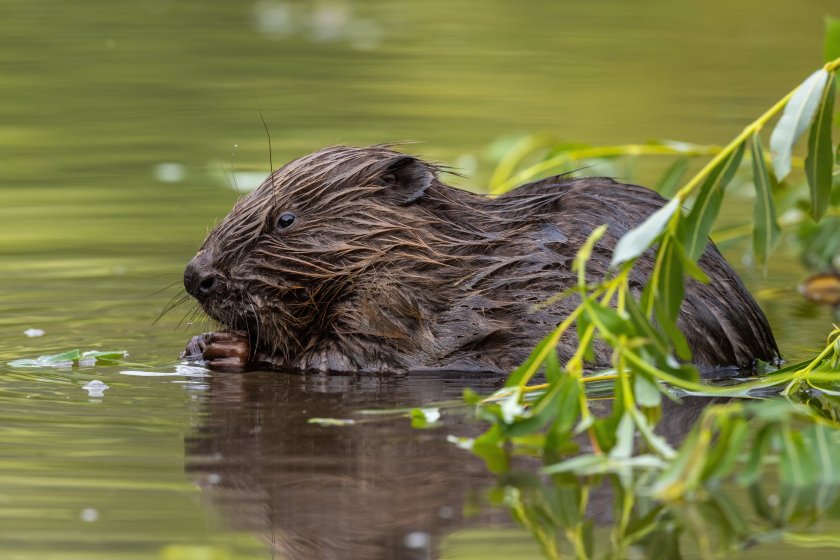
New resources have been issued to help Scottish farmers manage beavers on their land following a major policy change by the government.
The Farm Advisory Service (FAS), which is funded by the Scottish government, has published the resources to help farmers learn about managing land with beavers.
Beavers have been reintroduced to Scotland over the last two decades after being hunted to extinction in the 16th century.
In 2021, the Scottish government announced it would increase the translocation of beavers across Scotland, supporting the expansion of their population.
However, farming groups in Scotland have frequently warned that farmland could be destroyed by beavers burrowing or dam building on or near productive land.
While some areas are unsuitable for beavers due to their topography and agricultural value, FAS says there are ideal places throughout Scotland where their presence will not cause serious concern.
The impacts from beaver activity on land varies, with the service saying there are several options available to farmers to help them live alongside beavers and effectively mitigate their activity if required.
A series of case study videos have been produced featuring farmers discussing their experiences of implementing beaver management options.
There are also interviews with stakeholders including NatureScot, Beaver Trust and the Cairngorm National Park which discuss their plans to translocate beavers to the National Park.
Rachel Smillie from SAC Consulting, who helped produce the resources, said the videos showcased that when beavers are in suitable landscapes, minimal to no intervention is needed as their activity is contained within the riparian zone.
"When producing the case study videos, we visited farmers who have beavers or have seen some beaver activity on their land," she explained.
“It was great to see first-hand how they are living alongside them, and the management actions they use to mitigate unwanted impacts.
"However, the videos are also a good example of showing the options available to farmers when they turn up in unsuitable areas, and the value of NatureScot’s Beaver Mitigation Scheme in providing support.”
